Narcissism is a complex psychological concept that has captured the attention of many, both in the field of psychology and in the public eye. In this article, we will delve into the depths of narcissism, exploring its symptoms, causes, diagnosis, the role of blood tests, the best treatment approaches, and strategies for counteracting this challenging personality trait.
Understanding Narcissism
Narcissism is a personality disorder characterized by a grandiose sense of self-importance, an excessive need for admiration, and a lack of empathy for others. There are two primary types of narcissism:
Types of Narcissism
Narcissism is a complex personality trait that can manifest in various forms, and understanding these different types of narcissism is crucial in recognizing and addressing this behavior. In this article, we will explore the two primary types of narcissism: Grandiose Narcissism and Vulnerable Narcissism, and delve into the common symptoms associated with narcissistic behavior.
Grandiose Narcissism:
Grandiose narcissism is often what comes to mind when people think of narcissistic individuals. This type of narcissism is characterized by an inflated sense of self-importance, a constant need for admiration, and a lack of empathy for others. People with grandiose narcissism tend to believe they are superior to others and may display arrogant and entitled behaviors. They often seek attention and praise and can be manipulative in their interactions.
Individuals with grandiose narcissism may exhibit the following traits:
- Grandiosity: They have an inflated view of their own abilities and accomplishments. They often overestimate their talents and accomplishments.
- Need for Admiration: Those with grandiose narcissism constantly seek admiration and praise from others. They want to be the center of attention and require validation.
- Lack of Empathy: Empathy is in short supply for individuals with this form of narcissism. They struggle to understand or connect with the emotions of others.
- Exploitative Behavior: Grandiose narcissists may exploit others for their own gain, whether it’s in personal or professional relationships.
- Arrogance: They often come across as arrogant and condescending, believing they are above everyone else.

Vulnerable Narcissism:
Vulnerable narcissism, on the other hand, is a subtler but equally damaging form of narcissism. People with vulnerable narcissism typically have low self-esteem and a fragile self-image. They are highly sensitive to criticism and often engage in self-pity. Unlike grandiose narcissists, they may not display overt arrogance, but their behavior is marked by chronic self-doubt and a constant need for reassurance.
Common traits associated with vulnerable narcissism include:
- Hypersensitivity: Vulnerable narcissists are highly sensitive to perceived slights or criticism. They often take things personally and become defensive.
- Chronic Self-Doubt: They have a constant inner struggle with self-esteem and may seek reassurance from others repeatedly.
- Victim Mentality: Individuals with vulnerable narcissism may adopt a victim mentality, seeing themselves as perpetual victims of circumstance or others’ actions.
- Avoidance of Criticism: They will go to great lengths to avoid criticism or situations that might damage their self-esteem.
- Need for Reassurance: Reassurance and validation from others are essential for individuals with vulnerable narcissism to maintain their self-worth.
Common Symptoms of Narcissism
Narcissism is a complex personality trait that exists on a spectrum, ranging from healthy self-esteem to narcissistic personality disorder (NPD). While not all individuals who exhibit narcissistic traits have NPD, there are common symptoms and behaviors associated with narcissism that can help identify these traits in people. In this article, we will explore some of the most common symptoms of narcissism, including exaggerated self-importance, a constant need for admiration, a lack of empathy, and manipulative behavior.
Exaggerated Self-Importance:
One of the hallmark symptoms of narcissism is an exaggerated sense of self-importance. Individuals with narcissistic traits often have an inflated self-image and believe that they are exceptional or unique in some way. They may constantly seek recognition and validation for their perceived superiority. This sense of grandiosity can manifest in various ways, from bragging about their achievements to expecting preferential treatment.
Narcissists may display an excessive need to be the center of attention, often dominating conversations and steering them toward topics related to themselves. They have a deep desire to be admired and praised for their supposed exceptional qualities, and they are quick to dismiss or belittle others to maintain their sense of superiority.
Need for Constant Admiration:
Another prominent symptom of narcissism is a constant need for admiration. Narcissists thrive on the attention and adoration of others, and they actively seek out opportunities to be admired. They may fish for compliments, share their accomplishments, or engage in behaviors designed to elicit admiration.
This insatiable need for admiration can strain relationships as it often leads to one-sided interactions, with the narcissist’s desire for validation taking precedence over others’ needs or feelings. It can be exhausting for friends, family members, or partners to constantly cater to a narcissist’s need for attention.
Lack of Empathy:
A lack of empathy is a concerning symptom of narcissism. Narcissists often struggle to understand or relate to the emotions and perspectives of others. They may be dismissive of others’ feelings or experiences, believing that their own concerns are far more important. This lack of empathy can lead to interpersonal conflicts, as narcissists may seem indifferent to the pain or distress of those around them.
Narcissists may also have difficulty forming genuine emotional connections, as their self-centered focus limits their ability to connect with others on a deeper level. Their relationships tend to be transactional, with the narcissist primarily interested in what they can gain from the interaction.
Manipulative Behavior:
Manipulative behavior is a common symptom of narcissism. Narcissists are skilled at manipulating others to serve their own needs and desires. They may use tactics such as guilt-tripping, gaslighting, or playing the victim to gain control and maintain the upper hand in relationships.
Narcissists often have a strong desire for power and control, and they will go to great lengths to ensure they maintain it. They may exploit the vulnerabilities of those around them to achieve their goals and may be willing to deceive or manipulate to get what they want.
Narcissism is a multifaceted personality trait that can manifest in various ways. Common symptoms of narcissism include exaggerated self-importance, a constant need for admiration, a lack of empathy, and manipulative behavior. Recognizing these symptoms can be crucial for understanding and managing relationships with individuals who exhibit narcissistic traits. It’s important to note that not all narcissistic traits indicate narcissistic personality disorder (NPD), and a professional diagnosis is necessary for a comprehensive understanding of the condition.

Causes of Narcissism
Narcissism, a personality trait characterized by excessive self-centeredness, a need for admiration, and a lack of empathy for others, is a complex phenomenon. While there is no single cause of narcissism, it is widely recognized that family background and childhood experiences play a significant role in shaping an individual’s narcissistic tendencies. In this article, we will explore how family upbringing and early life experiences contribute to the development of narcissism.
Family Background:
The Parent-Child Relationship: One of the key factors in the development of narcissism is the quality of the parent-child relationship. Children who grow up with parents who are overly critical, demanding, or neglectful may be more prone to developing narcissistic traits. In such environments, children often learn to seek validation and approval from external sources, as they do not receive it from their parents.
Parental Narcissism: Children raised by parents who exhibit narcissistic traits themselves may also be at a higher risk of developing narcissistic tendencies. Parents who are excessively self-centered and lack empathy can model these behaviors for their children, who may learn that such attitudes and behaviors are acceptable.
Unrealistic Praise and Overindulgence: While it is essential for parents to provide love and support to their children, excessively praising and overindulging a child can lead to the development of narcissistic tendencies. When children are constantly told they are the best, special, and entitled to everything, they may grow up with an inflated sense of self-importance.
Childhood Experiences:
Unrealistic Expectations and Spoiling: Children who are consistently shielded from disappointments and challenges may develop unrealistic expectations about the world. When they face setbacks or criticism, they may struggle to cope, leading to a sense of entitlement and an inability to handle failure.
Peer Relationships: Childhood experiences with peers can also impact the development of narcissism. Children who struggle to form healthy relationships with their peers may seek validation and self-esteem from external sources, such as social media, where they can curate a false image of themselves.
Lack of Empathy and Emotional Validation: In families where emotions are dismissed or not validated, children may grow up lacking empathy for others. They may find it challenging to understand or connect with the emotions of others, which is a hallmark trait of narcissism.
The Role of Trauma: Childhood trauma, such as physical or emotional abuse, can be a significant factor in the development of narcissistic traits. Children who experience trauma may use narcissistic behaviors as a defense mechanism to protect themselves from further harm.
It’s important to note that not every child raised in these environments will develop narcissism. The development of narcissistic traits is influenced by a complex interplay of genetic, environmental, and psychological factors. Furthermore, narcissism exists on a spectrum, from healthy self-confidence to pathological narcissism, such as narcissistic personality disorder.
Understanding the potential role of family background and childhood experiences in the development of narcissism is crucial for early intervention and treatment. Individuals who recognize narcissistic tendencies in themselves or their loved ones can seek therapy and counseling to address the underlying causes and learn healthier ways to relate to themselves and others.
Family background and childhood experiences can significantly contribute to the development of narcissism. Factors such as the parent-child relationship, parental narcissism, unrealistic praise, childhood experiences, and the role of trauma all play a part in shaping an individual’s narcissistic tendencies. By recognizing these factors and seeking appropriate help and support, individuals can work towards healthier and more empathetic relationships with themselves and those around them.
Diagnosis of Narcissism
Diagnosing narcissism can be a complex and intricate process, primarily due to the multifaceted nature of narcissistic personality disorder (NPD). To accurately identify and assess narcissism, mental health professionals employ a variety of methods, including the use of standardized tools such as the Narcissistic Personality Inventory (NPI), clinical interviews, and observation.
Narcissistic Personality Inventory (NPI):
One of the primary tools used in diagnosing narcissism is the Narcissistic Personality Inventory (NPI). This self-report questionnaire was developed by Robert Raskin and Calvin S. Hall in 1979 and is designed to assess both grandiose and vulnerable aspects of narcissism.
The NPI typically consists of a series of statements or questions that individuals are asked to respond to, indicating the extent to which they agree or disagree with each statement. The statements often revolve around themes related to self-importance, entitlement, a need for admiration, and a lack of empathy. Respondents might be asked to rate statements like, “I am a special person” or “I insist on getting the respect that is due to me.”
Mental health professionals use the NPI to gauge the presence and severity of narcissistic traits in an individual. While it can provide valuable insights, it’s important to note that the NPI is not a diagnostic tool in itself but rather a screening instrument. High scores on the NPI may suggest narcissistic tendencies, prompting further assessment and evaluation.
Clinical Interviews:
Clinical interviews are a critical component of the diagnostic process for narcissism. These interviews involve face-to-face or virtual interactions between the individual and a trained mental health professional, such as a psychologist or psychiatrist.
During the clinical interview, the clinician carefully assesses the individual’s behaviors, thoughts, emotions, and interpersonal relationships. They may ask questions to explore aspects of narcissism, such as an inflated sense of self-importance, a lack of empathy, an excessive need for admiration, and fragile self-esteem. They also evaluate how these traits manifest in various life domains, including personal, professional, and social contexts.
Moreover, clinical interviews provide an opportunity for the clinician to observe the individual’s emotional regulation and interpersonal functioning. Narcissists often struggle with anger, irritability, and maintaining stable relationships. These observations, combined with the information gathered during the interview, help mental health professionals arrive at a comprehensive understanding of the individual’s narcissistic tendencies.
Observation:
Observation is another valuable method in the diagnosis of narcissism. It involves the careful monitoring of an individual’s behaviors and interactions in real-life settings. The observations are typically conducted by mental health professionals who are trained to recognize narcissistic traits in action.
In social and interpersonal contexts, narcissists often display a range of characteristic behaviors. They may seek constant validation, be excessively competitive, and exhibit a lack of empathy toward others. Their interpersonal relationships are often marked by dominance and a sense of entitlement.
Observations can help mental health professionals identify these behaviors and assess the impact of narcissism on an individual’s life and relationships. For instance, in a work environment, a narcissistic individual may demand special treatment, belittle colleagues, and frequently take credit for the accomplishments of the team. These observable behaviors can be critical in diagnosing narcissism.
Diagnosing narcissism is a multifaceted process that involves the use of various assessment methods, including the Narcissistic Personality Inventory (NPI), clinical interviews, and observations. While the NPI serves as an initial screening tool, clinical interviews provide a deeper understanding of an individual’s thoughts, emotions, and behaviors related to narcissism. Observations in real-life settings offer additional insights into how narcissistic traits manifest in social and interpersonal contexts.
It’s important to note that the diagnosis of narcissism should be conducted by qualified mental health professionals who can integrate information from multiple sources and consider the individual’s overall functioning. A precise diagnosis is crucial for providing appropriate treatment and support to individuals dealing with narcissistic personality disorder.
The Role of Blood Tests
The diagnosis of narcissism is a complex process that often involves psychological assessments, clinical interviews, and observation of an individual’s behavior and thought patterns. However, in recent years, there has been growing interest in exploring the physiological aspects of narcissism, including the potential role of blood tests in diagnosis. While psychological assessments remain the primary method for diagnosing narcissistic personality disorder, blood tests have offered intriguing insights into the physiological factors that may contribute to this personality trait.
Blood tests are a routine part of medical assessments, primarily used to evaluate various health parameters, such as cholesterol levels, blood sugar, or hormonal balance. These tests can also provide valuable information about an individual’s physiological state, which has led to some researchers exploring the correlation between narcissism and specific blood markers.
Recent studies have suggested that there may be a connection between narcissism and hormonal imbalances or neurochemical factors. For example, researchers have examined the levels of hormones like cortisol and testosterone in individuals with narcissistic traits. Cortisol, often referred to as the “stress hormone,” plays a role in the body’s response to stress, while testosterone is associated with traits like dominance and aggression.
High levels of cortisol have been linked to chronic stress, and some individuals with narcissistic traits may experience elevated stress levels due to their constant need for admiration and the fear of criticism. As a result, researchers have explored whether there is a relationship between elevated cortisol levels and narcissism.
Conversely, some studies have investigated the potential link between narcissism and elevated testosterone levels. Testosterone is known to influence behaviors related to dominance, competitiveness, and self-confidence—all of which are characteristics commonly associated with narcissistic individuals.
In these studies, blood tests have revealed some intriguing correlations. For example, some individuals with narcissistic traits have shown increased cortisol levels, suggesting that chronic stress may indeed be a factor in the development or maintenance of narcissism. On the other hand, elevated testosterone levels have been observed in certain cases, potentially contributing to the grandiose self-perception seen in individuals with grandiose narcissism.
While these findings are intriguing, it’s important to note that blood tests alone are not a definitive diagnostic tool for narcissism. The relationship between blood markers and personality traits is complex and multifaceted. Blood test results can vary significantly among individuals due to various factors, including genetics, lifestyle, and overall health.
Psychological assessments, clinical interviews, and behavioral observation remain the gold standard for diagnosing narcissism. These methods provide a comprehensive understanding of an individual’s personality and behavior, taking into account their thoughts, emotions, and interpersonal interactions.
However, the information gained from blood tests can still be valuable. It offers a more holistic perspective on narcissism, allowing clinicians to consider both psychological and physiological factors when assessing and treating individuals with narcissistic traits. This integrative approach may lead to more tailored and effective treatment strategies.
While blood tests are not a standalone diagnostic tool for narcissism, they do play a significant role in our understanding of the condition. The relationship between blood markers and narcissistic traits is complex, and further research is needed to establish clear links. Psychological assessments and clinical interviews remain the primary methods for diagnosing narcissism, but the insights gained from blood tests can contribute to a more comprehensive assessment and treatment plan for individuals with narcissistic personality traits.
Best Treatment Approaches
Narcissism is a complex personality disorder that can significantly impact an individual’s life and relationships. Addressing this condition requires a multi-faceted approach, and one of the critical components of treatment involves psychotherapy. This article explores some of the best treatment approaches for narcissism, including Cognitive-Behavioral Therapy (CBT), Dialectical Behavior Therapy (DBT), and the role of medications in managing this challenging personality trait.
Cognitive-Behavioral Therapy (CBT)
Cognitive-Behavioral Therapy (CBT) is a widely recognized and effective psychotherapeutic approach in treating narcissism. It focuses on identifying and modifying dysfunctional thought patterns and behaviors, making it particularly valuable for individuals with narcissistic personality traits.
CBT helps individuals recognize the cognitive distortions that underlie narcissistic behaviors, such as an exaggerated sense of self-importance and a lack of empathy. Through guided sessions with a trained therapist, individuals learn to challenge these thoughts and replace them with healthier, more realistic perspectives.
One of the primary goals of CBT in treating narcissism is to improve self-awareness and empathy. By encouraging clients to reflect on their actions and the impact on others, they can gain a better understanding of the consequences of their behavior. Over time, this can lead to more balanced and harmonious interpersonal relationships.
CBT also equips individuals with practical coping strategies for managing situations that trigger their narcissistic tendencies. For example, they may learn to respond to criticism with less defensiveness and more openness to feedback.
Dialectical Behavior Therapy (DBT)
Dialectical Behavior Therapy (DBT) is another valuable therapeutic approach for addressing narcissism. Initially developed to treat individuals with borderline personality disorder, DBT has proven effective in managing a range of emotional dysregulation and interpersonal difficulties, including those related to narcissism.
DBT integrates various elements, including mindfulness, emotion regulation, interpersonal effectiveness, and distress tolerance. For individuals with narcissistic traits, it can help them gain greater control over their emotional reactions, reduce impulsivity, and improve interpersonal skills.
One of the key features of DBT is its focus on validation and acceptance. Clients are encouraged to recognize and validate their emotions without judgment, which can be particularly beneficial for individuals with vulnerable narcissism who often struggle with low self-esteem. This approach helps clients build emotional resilience and navigate difficult emotional experiences without resorting to narcissistic defense mechanisms.
Medications
While psychotherapy is the primary approach for addressing narcissism, there may be cases where medications play a supportive role. It’s important to note that medications are not a direct treatment for narcissism itself but can be used to manage specific symptoms or co-occurring conditions.
In some instances, individuals with narcissistic traits may also experience mood disorders such as depression or anxiety. In these cases, medications like antidepressants or anti-anxiety medications may be prescribed by a qualified psychiatrist. These medications can help stabilize mood and reduce distressing symptoms that may exacerbate narcissistic tendencies.
It’s essential for individuals considering medication as part of their treatment plan to do so under the guidance of a mental health professional. Medications should be carefully assessed and monitored to ensure they are appropriate and effective in managing co-occurring conditions.
Addressing narcissism requires a comprehensive treatment approach, with psychotherapy at the forefront. Cognitive-Behavioral Therapy (CBT) helps individuals challenge distorted thought patterns, while Dialectical Behavior Therapy (DBT) equips them with emotional regulation and interpersonal skills. Medications, when needed, can manage co-occurring conditions, but they are not a direct treatment for narcissism itself. It’s important for individuals to work closely with mental health professionals to create a tailored treatment plan that addresses their specific needs and challenges associated with narcissistic personality traits.
Counteracting Narcissism
Narcissism is a personality trait that, when taken to an extreme, can manifest as Narcissistic Personality Disorder (NPD), a mental health condition characterized by a grandiose sense of self-importance and a lack of empathy for others. Dealing with narcissism, whether in oneself or others, can be challenging, but there are effective strategies to counteract its negative impact. Setting boundaries, practicing self-care, and seeking professional help are key components of addressing narcissism.
Setting Boundaries:
Establishing clear boundaries is essential when dealing with narcissistic individuals, whether it’s a family member, friend, or colleague. Narcissists often have difficulty respecting personal boundaries and can be prone to intruding on others’ space or emotionally manipulating them. Here are some moves toward successfully putting down and keeping up with stopping points:
- Identify Your Boundaries: The first step is to recognize your own boundaries and what you’re comfortable with. This could be related to personal space, emotional boundaries, or limits on certain behaviors.
- Communicate Assertively: When a narcissistic individual crosses your boundaries, it’s crucial to assertively and calmly communicate your discomfort. Use “I” proclamations to communicate your sentiments and requirements.
- Consistency Is Key: Narcissists may test boundaries repeatedly. It’s essential to maintain consistency in enforcing them. This helps convey the message that your boundaries are non-negotiable.
- Learn to Say No: Saying “no” is a powerful tool when setting boundaries. It’s okay to decline requests or actions that make you uncomfortable.
Self-Care:
Self-care is vital when dealing with narcissism, whether it’s in yourself or someone close to you. The stress and emotional toll of interacting with narcissistic individuals can be overwhelming, so self-care practices are essential for maintaining your well-being:
- Mental Health: Prioritize your mental health. This may involve therapy, counseling, or engaging in stress-reduction activities like meditation or yoga.
- Establish a Support System: Connect with friends and loved ones who understand your situation and can provide emotional support.
- Limit Contact: If the narcissistic individual is causing significant distress, consider limiting or even ending contact if it’s safe to do so.
- Set Realistic Expectations: Understand that you cannot change a narcissistic individual. Accepting this reality can relieve the frustration that often accompanies trying to change their behavior.
Seeking Professional Help:
Addressing narcissism often requires professional intervention, especially when dealing with Narcissistic Personality Disorder. This is the way proficient assistance can be helpful:
- Therapy: Individual therapy can be beneficial for those with narcissistic traits or NPD. Therapists can help individuals explore the root causes of their behavior and develop healthier coping mechanisms.
- Couples or Family Therapy: When narcissism is affecting relationships, couples or family therapy can help improve communication, establish boundaries, and navigate the challenges that arise.
- Support Groups: Support groups for both those dealing with narcissism and their loved ones can provide a sense of community and shared experiences. This can be especially helpful for emotional support and learning coping strategies.
- Psychiatric Evaluation: In severe cases of Narcissistic Personality Disorder, medication and psychiatric evaluation may be necessary to manage symptoms or co-occurring conditions.
- Educational Resources: Professionals can recommend educational materials and resources to better understand narcissism and how to deal with it.
Countering narcissism requires a multi-faceted approach. Setting and maintaining boundaries is essential for preserving your own well-being and mental health. Self-care practices can help you cope with the stress and emotional toll of interacting with narcissistic individuals. Seeking professional help, including therapy and support groups, can provide the necessary tools and guidance to navigate the challenges that narcissism presents. It’s important to remember that addressing narcissism is a complex process, and seeking professional assistance is often a critical step toward positive change and healthier relationships.
Conclusion
Narcissism is a multifaceted personality disorder with far-reaching effects on individuals and their relationships. Understanding its symptoms, causes, diagnosis, and potential treatment options is essential for personal growth and effective intervention. By recognizing the signs and seeking help when needed, individuals can work towards healthier, more fulfilling lives.
Frequently Asked Questions (FAQs)
- Is narcissism a common personality trait?
- Narcissism exists on a spectrum, with some individuals exhibiting more extreme traits than others. It’s relatively common to encounter mild narcissistic tendencies in people.
- Can narcissism be treated successfully?
- While it can be challenging, with the right treatment, individuals with narcissistic traits can make progress and improve their behavior and relationships.
- How can I deal with a narcissistic family member or partner?
- Setting clear boundaries, practicing patience, and seeking professional guidance can help you navigate these relationships more effectively.
- Are there any self-help strategies for managing narcissism?
- Yes, self-help strategies such as mindfulness, self-reflection, and self-compassion can be beneficial for individuals looking to manage their narcissistic tendencies.
- What are the long-term effects of narcissism on an individual’s life?
- Narcissism can lead to difficulties in forming and maintaining healthy relationships, which can impact one’s overall well-being and life satisfaction.
- What are the 5 main habits of a narcissist?
- Grandiose sense of self-importance. Narcissists have an inflated sense of their own importance and abilities. They may believe that they are superior to others and deserve special treatment.
- Fantasizing about achievements. Narcissists often fantasize about their achievements and their future success. They may create unrealistic expectations for themselves and others.
- Attention-seeking behavior. Narcissists crave attention and admiration from others. They may engage in attention-seeking behaviors, such as bragging, exaggerating their accomplishments, or putting others down.
- Lack of empathy. Narcissists have a limited ability to empathize with others. They may not understand or care about the feelings of others.
- Exploiting others. Narcissists may exploit others for their own gain. They may be manipulative and take advantage of others without feeling remorse.
Important Notice:
The information provided on “health life ai” is intended for informational purposes only. While we have made efforts to ensure the accuracy and authenticity of the information presented, we cannot guarantee its absolute correctness or completeness. Before applying any of the strategies or tips, please consult a professional medical adviser.















